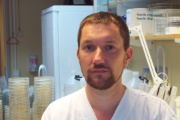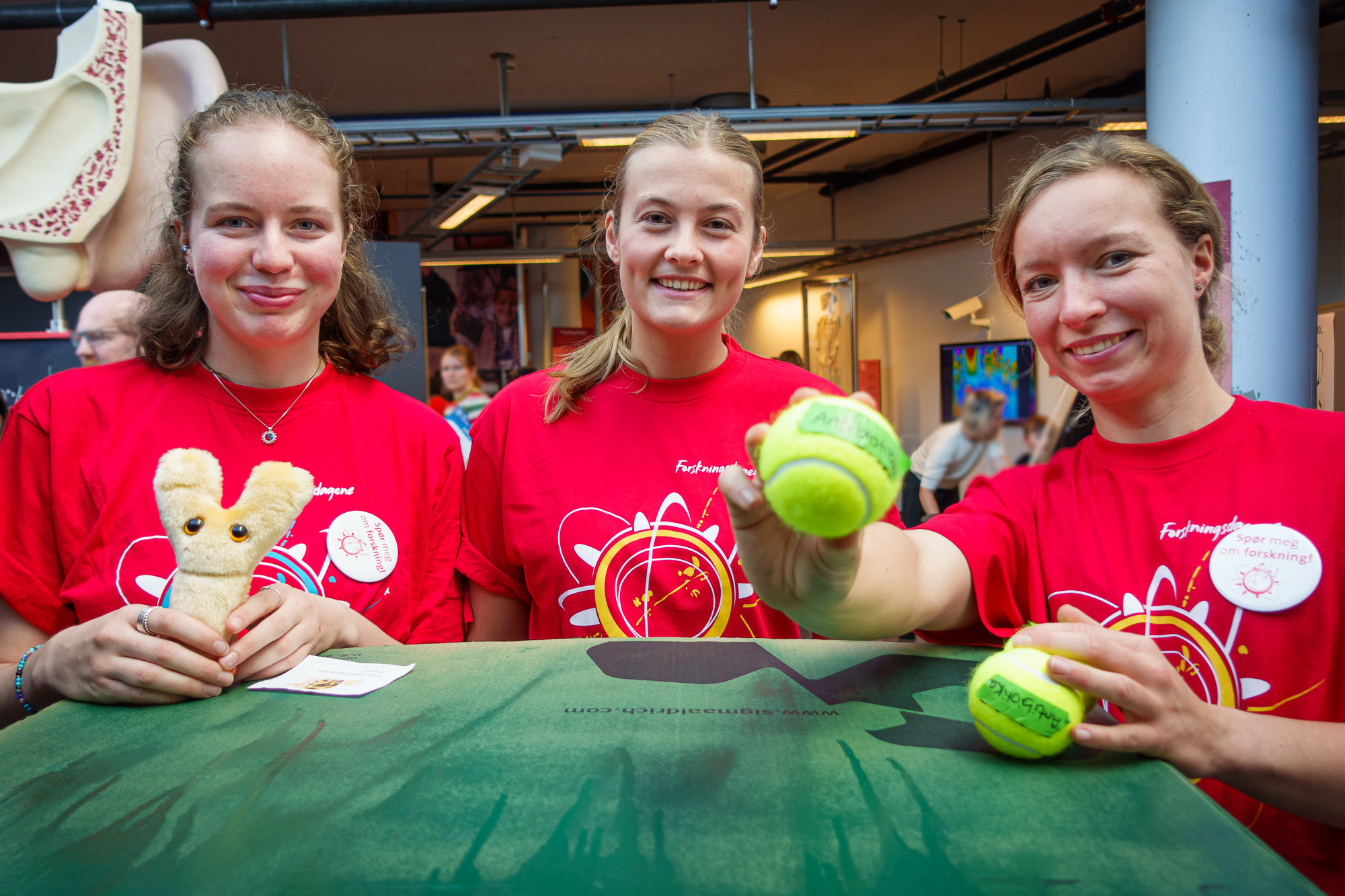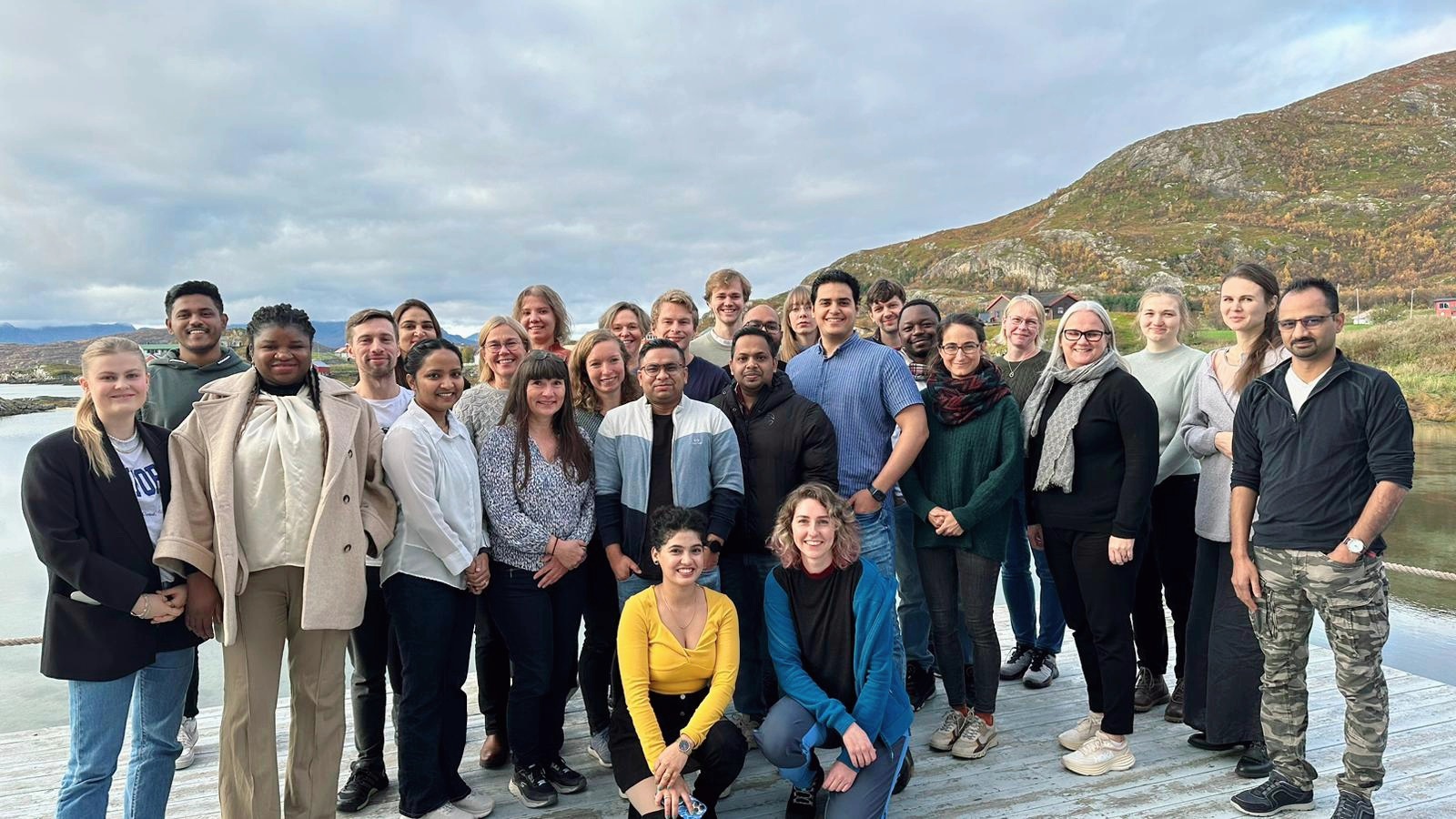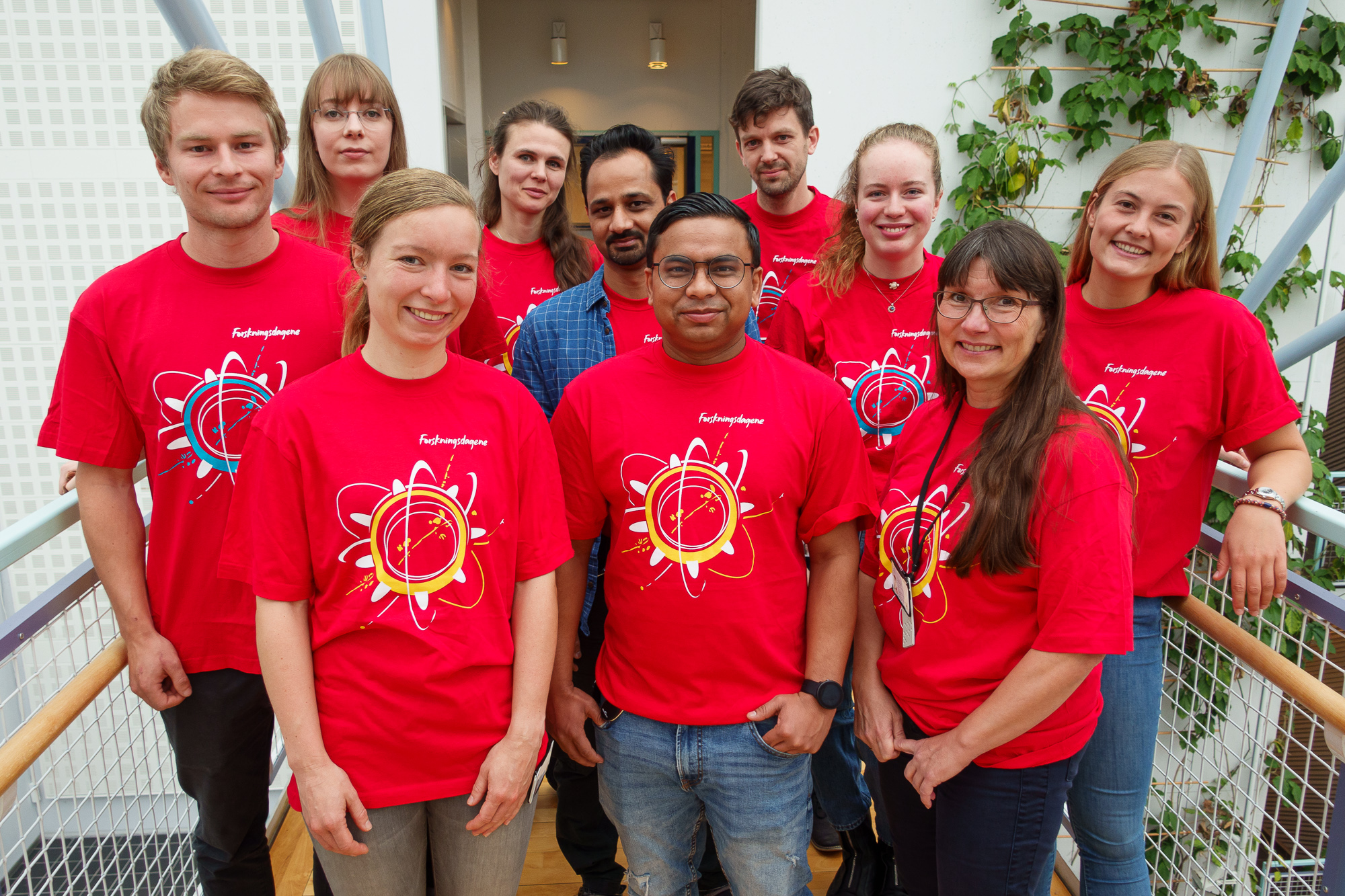Members
Mona Johannessen – Professor
Johannessen main research interest is to identify, explore and get in-depth understanding of species such as Staphylococcus aureus, Enterococcus faecium and/or Klebsiella pneumoniae with respect to...
1) host-microbe interaction, especially bacterial factors involved in colonisation and infection.
2) bacterial adaptation to various host niches and phenotypic heterogeneity
3) bacterial membrane vesicles
Arnfinn Sundsfjord – Professor
- Antimicrobials, antimicrobial resistance and evolution
- Klebsiella pneumoniae (Kp) is a key player in the global spread of antimicrobial resistance (AMR). Our studies involve comparative molecular epidemiological studies (whole genome sequencing and metagenomics), pheno- and genotypic associations in pathogenicity and antimicrobial susceptibility (GWAS and machine learning), as well as preclinical effectstudies of bacteriophages in the containment of carriage of and infections caused by multidrug resistant Kp. Kp-studies are funded by the Trond Mohn Foundation ( https://mohnfoundation.no/amr-prosjekter/) and partner institutions.
- Program director, Centre for New Antibacterial Strategies (CANS; https://uit.no/research/cans): En interdisiplinary research center funded by UiT and the Tromsø Research Foundation (https://tfstiftelse.no/) 2019-.
- Medical Director, National Norwegian Advisory Unit in Detection of Antimicrobial Resistance (K-res; https://unn.no/fag-og-forskning/k-res) at the University Hospital of North-Norway (UNN) funded by the Norwegian Ministry of Health, the Northern Regional Health Authority, and UNN.
Kontaktperson for AMR Bridge, og ansvarlig for prosjektet ledet fra Tromsø.
Johanna U Ericson – Professor

Øyvind Myrvoll Lorentzen – Researcher
Interested in biofilms, c-di-GMP signalling, evolution and AMR.


Gunnar Skov Simonsen – Professor
Gunnar Skov Simonsen MD, PhD (born 1965) is Professor of Clinical Microbiology at the University of Tromsø and Director of the Department of Microbiology and Infection Control at the University Hospital of North Norway in Tromsø, Norway. He is also in charge of NORM – The Norwegian Organization for Surveillance of Antimicrobial Resistance and editor of the yearly report on antibiotic consumption and antimicrobial resistance (AMR) among humans and animals in Norway (NORM / NORM-VET). His research interests are within molecular epidemiology of AMR as well as population-based studies of host-microbe interactions in bacterial colonization and infection. He has co-authored around 135 papers in international peer-reviewed scientific journals.
Simonsen has previously served as Medical Officer at WHO HQ in Geneva (2002 – 2003) working with surveillance issues and implementation of the WHO Global Strategy for Containment of Antimicrobial Resistance. Since 2003 he has regularly contributed at WHO consultations at regional and global levels. He has been involved in surveillance activities in North-Western Russia and is presently enganged in a project for AMR-related capacity building in education and health services in Malawi and Mozambique. Within Europe, Simonsen is the Norwegian National Focal Point for AMR at the European Center for Disease Prevention and Control (ECDC) as well as member (from 2019 chair) of the Coordination Group for the European Antimicrobial Resistance Surveillance Network (EARS-Net). He worked 2012-2013 with the WHONET group at the WHO Collaborating Center for Surveillance of Antimicrobial Resistance at Brigham and Women´s Hospital / Harvard Medical School in Boston (USA). From 2015-2018 he served as member of the Scientific Advisory Board of the EU Joint Programming Initiative for Antimicrobial Resistance (JPI-AMR). Since September 2024 he is a visiting academic at the Wellcome Sanger Institute in Cambridge, UK.
Anne-Merethe Hanssen – Professor
- Host-microbe interaction
- Staphylococcus aureus, MRSA and coagulase-negative staphylococci
- S. aureus colonization and infection
- Microbiome in nose, throat, skin and gut
- 'Omics - metagenomics and transcriptomics
- Antimicrobial resistance
- Diagnostics in clinical microbiology
Christian Lentz – Professor
We employ chemical tools, molecular imaging and microbiological techniques to study how bacterial pathogens adapt to environmental conditions, e.g. during infection, and how they respond to antibiotics. We use these insights to develop innovative antimicrobial treatment strategies and chemical probes or sensors for diagnostic pplications that are urgently needed in times of emerging drug resistance. More information is found below.
1. Single-cell microbial physiology and biomarker discovery
Antibiotic resistance is, according to the World Health Organization, one of the biggest threats to mankind. Therefore, the development of novel chemotherapeutic and diagnostic strategies for bacterial infections to counter antimicrobial resistance and optimize treatments is an urgent priority requiring a profound understanding of the underlying molecular processes. How bacteria colonize, infect and persist in a host is commonly studied using global read-outs (e.g. genomics, transcriptomics, proteomics) that are performed at the level of entire bacterial populations, providing a phenotypic snapshot of the ‘averaged cell’. That, in fact, single cells or subpopulations of a single bacterial pathogen behave very differently and that this phenotypic heterogeneity contributes to bacterial virulence and problems in clinical management is not commonly taken into account. Two clinically relevant examples for this heterogeneity are e.g. differentiated surface-associated bacterial communities (‘biofilms’) that are difficult to eradicate or ‘persister cell’ subpopulations that are refractory to antibiotic treatment. The sparsity of knowledge on cellular individuality is owed to the simple fact that functionally different cells remain morphologically indistinguishable from each other. Our approach to dissecting bacterial supopulation phenotypes is to use tailored fluorescently tagged small molecule probes as exogenous markers of microbial physiology, and validate their use as biomarkers for different cellular phenotypes. We use a variety of different fluorescent chemical probes, but a focus lies on the use of tailored activity-based probes (ABPs) which are functionalized enzyme inhibitors that covalently bind to the active site of their targets allowing for visualization of their activity. Our long-term goal is to evaluate chemical probes as biomarkers for the development of diagnostic tests to rapidly assess clinically relevant parameters of a bacterial isolate such as metabolic state, antibiotic resistance or virulence.
2. Dissection of bacterial virulence
Bacterial virulence is linked to the remarkable capability of pathogens to survive in different biological niches, such as different tissue sites, biotic and abiotic surfaces and in extracellular and intracellular states. These niches do not only present unique molecular surfaces and nutrient levels, but are also characterized by different stress conditions posed e.g. by the host immune system, microbial competitors, antimicrobial agents and other environmental factors. The corresponding exposure to different molecular environments and the transitioning between niches will require cells to adapt their functional state. In order to identify enzymatic targets that are functionally relevant for bacterial survival, we use chemical proteomics strategies. More specifically, we use functionalized small molecule probes such as activity-based probes to detect, enrich and identify target enzymes. For functional validation of these targets, we will use protein biochemistry and utilize bacterial mutant/reporter strains and chemical probes in different in vitro and in vivo assays.
Ongoing 3rd-party financed projects:
Pågående prosjekter finansiert via tredjemidler:
HNF1688-23 ´Closing the diagnostic gap in adaptive antimicrobial resistance of multi-drug resistant Gram-negative pathogens (2023-2026, project leader, funded by HelseNord)
HNF1570-21 ´Activity-based proteomic mining of enzyme targets for clinical control of
vancomycin-resistant Enterococcus faecium´(project leader, 2021-2024, funded by HelseNord)
Are you interested in our research, want to join the team or have more questions? Please do not hesitate do get in touch!
Also follow our activies on Twitter: https://twitter.com/ChristianSLentz !
CV
2004 – 2009 Undergraduate studies (Diploma, equivalent to MSc) in Molecular Biomedicine, University of Bonn, Germany
2009 – 2013 PhD student. Institute of Medical Microbiology, Immunology and Parasitology in collaboration with the Chemical Biology Unit of the Life and Medical Sciences Institute. University of Bonn, Germany.Supervisors: Dr. Kenneth Pfarr, Prof. Achim Hoerauf, Prof. Michael Famulok
2013 - 2014 Postdoctoral fellow at the Institute of Medical Microbiology, University of Bonn, Germany. Supervisors: Dr. Kenneth Pfarr, Prof. Achim Hoerauf
2014 – 2018 Postdoctoral fellow in the research group of Prof. Matthew Bogyo, Department of Pathology, Stanford University, CA, USA
2018 - 2019 Senior postdoc at the Department of Chemical Biology (CBIO), Helmholtz-Centre for Infection Research, Braunschweig, Germany. Head of department: Prof. Mark Broenstrup
Since 2020 Associate professor in Infection Biology, Research Group of Host-Microbe Interactions and Centre for New Antibacterial Strategies (CANS), Department of Medical Biology, Faculty of Health Sciences, UiT – The Arctic University of Norway.
Kristin Hegstad – Professor
Main research topics: Antimicrobial resistance - Mobile genetic elements and horizontal gene transfer of antimicrobial resistance - Mechanisms for antimicrobial resistance - Detection of antimicrobial resistance - Novel virulence factors as targets for disarmament of pathogens - Membrane vesicles
Member of Centre for New Antibacterial Strategies (CANS)
For publications see: https://orcid.org/0000-0002-1314-0497
Main research project: New strategies to combat multidrug resistant enterococci
Infections caused by multi-resistant bacteria are very difficult to treat and pose a serious threat to human health as well as medical advances. Enterococcus faecium is a leading cause of nosocomial infections, especially in severely ill and immunocompromised patients. Vancomycin resistant E. faecium is ranked as number four on the WHO’s priority pathogens list in antimicrobial research and development due to public health concerns. While in Norway only 0-10 cases of Vancomycin Resistant Enterococci (VRE) were reported annually before 2010, this number increased to 384 in 2017. Novel therapeutic approaches and alternatives for infection control are desperately needed to combat VRE.
Sub-projects
1. The Norwegian VRE study. The aims of this study are to gain new insights in to the spread of antimicrobial resistance in enterococci, identify new targets for antimicrobial treatment and containment of infections caused by multidrug resistant enterococci, and define novel infection control interventions for VRE. The study takes advantage of an on-going national epidemiological study of VRE in Norway and will use collections of non-VRE isolates from the Norsk Overvåkningssystem for antibiotikaResistens hos Mikrober (NORM) registry and from a general population sample (Tromsø 7). Combining clinical epidemiological information about the VREs and genomic data from the different strain collections we can identify determinants best suited for anti-virulence targeting of E. faecium, reveal unknown transmission patterns and de novo generation of VRE as well as relate the Norwegian epidemiology to the global epidemiology of VRE.
2. Alternative Strategies to Combat VRE. With this project we aim to find treatment alternatives in the fight against E. faecium infections, to lead way for novel therapy and eventually slow down the increase of VRE incidences in Norway. First, immunization with MVs derived from E. faecium is a promising alternative for prevention and/ or treatment of enterococcal infections. Second, by exploring mobile genetic elements as putative modes of dissemination of resistance gene, we will gain knowledge, which will help to find target points to interfere with the spread of resistance genes. Third, investigating the interactions of commensal and nosocomial E. faecium will help our understanding of VRE and their contribution to dysbiosis. Overall, this project provides knowledge to develop novel drugs against VRE, which are urgently needed to shorten hospital stay, infection associated costs and discomforts.
3. New targets for prevention and treatment of infections by the Gram-positive ESKAPE bugs. New strategies for future infection treatment and prophylaxis are urgently needed. Classical antibiotics kill or supress bacterial growth, and cause high selective pressure for antibiotic resistance development. Another approach is to interfere directly with targets involved in host-microbe interaction, without killing the microbe or disturbing the normal flora creating dysbiosis. Our strategy is to find new targets for future intervention using two approaches a) machine learning to identify relevant target genes more prevalent in clinical E. faecium isolates compared to commensals and b) activity-based probes to identify enzymes in E. faecium and S. aureus involved in the meeting with host. The most interesting and prevalent target(s) will be validated by functional assays.
Veronika K. Pettersen – Associate Professor
I explore metabolite and protein signatures of the gut microbiome to understand its functions. My work focuses on gaining a deeper understanding of how the gut microbiome mediates colonization resistance, its relationship to pediatric cancer, and its development during infancy. I use the knowledge of the gut microbiome functions to advance strategies for disease prevention.
We are seeking participants for our study on the gut microbiome of children and youth.
Do you want to participate?
https://en.uit.no/project/microtromso_en/Participation
CURRENT PROJECTS
Gut Microbiome-based Biomarkers to Prevent Infections by Antimicrobial Resistant Bacteria in Infancy
funded by Helse Nord RHF
The microbial community living in the human intestine provides a first-line defense against enteric pathogens. Exploiting symbiotic bacteria for pathogen suppression is a viable alternative to the use of antibiotics in preventing infections.
This research project leverages two cohort studies of term infants to describe the biochemical impact of antibiotics and probiotics on their gut microbiome. The first is a randomized clinical trial co-led by the Paediatric Research group in Tromsø (UiT/UNN), which investigates the effects of probiotic therapy in Tanzanian children and its potential to prevent infections by ESBL-producing Enterobacterales (ProRIDE: Probiotics to Reduce Infections and Death and Prevent Colonization with ESBL- producing bacteria). The second study is a prospective, observational pilot study of infants with suspected symptoms of infection during the 1st week of life leading to antibiotic therapy (IMPALE: Impact of Antibiotics on the Neonatal Metabolome). The aim of both studies is to describe changes in faecal metabolites and microbial composition in association with antibiotic/probiotic use, drug-resistant strain colonization, and a risk of infection.
Compositional and metabolic changes of the gut microbiome in childhood cancers
funded by Barnekreftforeningen, Thorfinns gavefond til barnekreftforskning”and Erna og Olav Aakres stiftelse
The project is a collaboration between the Paediatric Research group at UiT, Norwegian Childhood Cancer Biobank, and researchers from the Centre for Ecological and Evolutionary Synthesis at the University of Oslo.
The gut microbiome has been implicated as a possible driver and regulator of cancer pathogenesis. Producing small molecules and metabolites that act both locally and systemically, the gut microbiome may promote or suppress cancer generation and progression. Although several studies have reported associations between microbial alterations and different types of cancers, the gut microbiome has not been systematically characterized in childhood cancer.
This project explores the compositional variation of the gut microbiome in paediatric cancer patients. By using DNA sequencing methods and metabolite profiling, the researchers will characterize features of the gut microbiome associated with cancer diagnoses in children. The goal is to describe microbiome-based markers that discriminate cancer cases from healthy controls and microbial metabolites that can serve as diagnostic biomarkers in therapeutic explorations.
Infant Gut Microbiome Acquisition: Off to a Healthy Start
funded by The Centre for Advanced Study (CAS) at The Norwegian Academy of Science and Letters
This project connects experts in microbiology, clinical science, epidemiology, and bioinformatics, which together discuss a roadmap for translational microbiome research. A sequence of workshops critically examines current microbiome-focused mother-child population studies, analytical and computational approaches for mining microbiome data, and experimental models for defining causality. In a subsequent research stay, a core group of researchers will formulate review manuscripts based on the workshops and develop joint proposals investigating mother-to-child microbial transmission, drivers of infant gut microbial colonisation, and the impact of antibiotic use on this process.
PAST PROJECTS:
Early-life gut fungal dysbiosis in pediatric asthma development
Proteomic characterization of Escherichia coli
A Combinatorial Mutagenesis Approach to Improve Microbial Expression Systems
Christopher Frøhlich – Associate Professor
Check out our webpage for an overview of the group’s research interests and current activities.
Bhupender Singh – Senior Engineer
Host-Microbial Interaction, Anti-microbial resistance, Population/Phenotypic heterogeneity, Molecular epidemiology, Microbiota
Kjersti Julin – Senior Engineer
Anique Johanna Elisabeth Maria Driessen – Principal Engineer

Kenneth Lindstedt – Postdoctoral fellow

Jeanette Grunnvåg – Postdoctoral fellow

Fatema-Tuz-Zahura Silvia – Research Assistant
Felix Schwab – Principal Engineer
My research focuses on the intersection of molecular biology, enzyme engineering, microbial interactions and antimicrobial resistance (AMR). I am currently focusing on the evolution and functional adaptation of AMR enzymes, understanding the molecular mechanisms behind enzyme promiscuity and its role in the emergence and dissemination of AMR. Tracing evolutionary processes that drive functional diversity in microbial communities.






